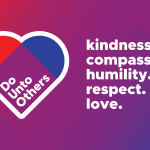What is God’s Will?
Micah 6:1-8
Hear what the Lord says: Rise, plead your case before the mountains, and let the hills hear your voice. 2Hear, you mountains, the controversy of the Lord, and you enduring foundations of the earth; for the Lord has a controversy with his people, and he will contend with Israel. 3?O my people, what have I done to you? In what have I wearied you? Answer me! 4For I brought you up from the land of Egypt, and redeemed you from the house of slavery; and I sent before you Moses, Aaron, and Miriam. 5O my people, remember now what King Balak of Moab devised, what Balaam son of Beor answered him, and what happened from Shittim to Gilgal, that you may know the saving acts of the Lord.?
6?With what shall I come before the Lord, and bow myself before God on high? Shall I come before him with burnt offerings, with calves a year old? 7Will the Lord be pleased with thousands of rams, with ten thousands of rivers of oil? Shall I give my firstborn for my transgression, the fruit of my body for the sin of my soul?? 8He has told you, O mortal, what is good; and what does the Lord require of you but to do justice, and to love kindness, and to walk humbly with your God?
John 13:31-35
??????????????? 31When he had gone out, Jesus said, ?Now the Son of Man has been glorified, and God has been glorified in him. 32If God has been glorified in him, God will also glorify him in himself and will glorify him at once. 33Little children, I am with you only a little longer. You will look for me; and as I said to the Jews so now I say to you, ?Where I am going, you cannot come.? 34I give you a new commandment, that you love one another. Just as I have loved you, you also should love one another. 35By this everyone will know that you are my disciples, if you have love for one another.?
Over 25 years ago, there was a dream to have a faith community in this neighborhood. A group of people who would embody God?s love and share it with their neighbors. There were many times when this dream was lived out well, but more times when it wasn?t lived out well. And I will say that this is probably typical for most churches. I think our dreams for the community to know Christ and experience God?s love begin to change our focus shifts from what God wants to what we want. I received an email this past week from Kay. Kay shared that when she wrote out the foundations and securities that we have as a congregation and as families, she designed a cross. I loved this image because it was a reminder that having both are important and that Jesus must be at the center of everything. If we go back to our new year?s resolution, the first resolution is to put God first in all we do. As we explored rebuilding our foundation and putting our faith and trust in God first, it might lead us to asking the question, ?What is God?s Will?? And I believe the prophet Micah gave an answer long ago that still applies today. The answer is what makes the dreams of God for a faith community become a reality. Let us pray.
I remember attending camps and conferences when growing up and singing a song that still resonates today. Yet as with all camp songs, even hymns, and songs on the radio, we sing the words and but take in the meaning that goes with the songs. Yet, when you hear the camp songs or some hymns, it reminds you of a good memory-of a loved one, a great experience, a sad time, high school, your favorite band as a young person, or your favorite concerts particular place or church, friends, family, or maybe our first love. Songs have a way of taking us back and reminding us of moments in our lives. For me, the song I have been singing all week is: ?What does the Lord require of you? To seek justice, and love kindness, and walk humbly with our God.? I can remember singing this song in rounds with guitars at evening worship at Work Camp in West Virginia. I remember the harmonizing that took place as we sang the song over and over until we felt the words to the core of our body. I still feel these words within whenever I read these words from Micah and think about what it means to do the will of God.
But these words were never put into context for me. And I don?t know if they have been put into context for you either. Much of what I am sharing today is from theologian Carol Dempsey who is a Professor of Theology in Biblical Studies from the University of Portland in Oregon from the book ?Feasting on the Word.?
In the 8th century BCE, the prophet Micah asked a would have been asking the people a similar question to ?What is God?s Will?? and the response given remains at the heart of right relationship with God, with humankind, and with all other communities of life on the plant. In eight verses, the poet describes the experience of a long-suffering God who remains faithful to an unfaithful people for whom the prophet makes intercession. The setting for Micah 6:1-8 is a courtroom. In verses 1-2 the poet makes it clear that God has a ?controversy? with the people and intends to ?contend? with them. One would expect an expression of righteous anger on the part of God as the case unfolds, but instead, words of heartfelt bewilderment and plea are proclaimed in verses 3-5.
The relationship between Israel and God is an intimate one, communicated by the expression of favor ?O my people.? God raises two important questions: ?What have I done to you? And in what have I wearied you? In these two questions, God is asking as if God were at fault. The command, ?Answer me,? is a very real and candid expression of God?s frustration. Afterwards, God shares different times in the history of life with the Israelites where God graciousness have been lived with the people: the exodus event, plea for the people, and a great blessing on the land. The people seemed to have forgotten their ?story? and, in doing so, have forgotten their saving God. So the people have fallen out of ?right? relationship with their God and consequently with one another because of the lack of mindfulness of their story with God. They no longer seem to be centered on or in their God. Throughout Israel?s history, God has always remembered the people and the covenant made with them, and the people have been strongly encouraged again and again to remember their God and all God?s wondrous ways and deeds. No God calls on the people to ?remember? once again. This remembering will be their starting point back to ?right relationship.?
Then in verses 6-7 there is a response to God?s questions, plea, and demand for an answer. The prophet Micah is humble, self-reflective, apologetic and repentant state, representing his people, who have yet to come before the Lord. Micah responses with soul searching questions aimed at atonement, which means reconciliation and amends. In these offers, there are sacrifices offered. Whether or not such a sacrifice would be pleasing to God and suffice for atonement becomes clear in verse 8. What God requires is for one to do justice, love kindness, and walk humbly with God. The last is the most important one. Only when one walks humbly with God will one come to learn and understand how to do justice and love kindness.
Here is a lesson on the different types of justice. Theologically, justice is identified with the nature of God (Isaiah 30:18) and is an activity of God (Genesis 18:25, Psalm 9:4). ?Justice is a transformative virtue that seeks to establish and restore community, while aiming to balance personal good with the common good. Three types of justice include (1) commutative justice, which focuses on relationships between members of the community; (2) distributive justice, which functions to ensure the equitable distribution of goods, benefits, and burdens of a community; and (3) social justice, which affects the social order necessary for distributive justice. ?To love kindness? involves both affection and ethical love of neighbor and fidelity to covenant and law. ?To walk humbly with God? implies an attitude of reverence and openness, coupled with a sense of personal integrity, candor, and honesty. God?s people are called to godliness and to live out the fullness of justice and love.
Our message from Micah attests to God?s deep and abiding love, while providing God?s people with a way forward for ?God?s will,? ?right relationship,? and a full flourishing of the common good. So does the message of Jesus. Jesus came into the world to show everything there was a different way to live where people can follow God?s will, be in right relationship with God and all of creation and humanity, and bring full flourishing for the common good. This is what it means to be a Christian. This is justice, and there is so much injustice happening right now. At least that is how I see it. So I thought we would do an activity together. I believe we all have many understandings of what it means to ?seek justice,? so I wanted us to share those with one another. And then I want us to talk through how we respond to the injustices we see as a faith community. You ready?
As we wrap up, I realized this morning that the song ?What Does the Lord Require of You?? has strongly impacted my faith and my politics. This passage from Micah is a huge part of what makes me, me. I look at everything happening in my life, with my family, in my community, in our community, our country/nation, and world, from the perspective of ?seeking justice, loving kindness, and walking humbly with God.? It is my hope and prayer that as a faith community, we can seek justice for those in our midst, our community, our nation, and even our world. May we be a safe sanctuary for all people of all nations, and my our faith witness to the loving kindness of Jesus. Amen.







